\ PROJECTS

Pastoral commons as key to global environmental sustainability
Pastoral commons represent a dynamic and intricate bio-cultural heritage system that is essential for global environmental sustainability, including climate change mitigation. These systems, shaped through centuries of local governance and traditional ecological knowledge, integrate tangible and intangible cultural heritage with unique ecosystems. Pastoralist communities maintain resilient landscapes through collective land management, fostering biodiversity, carbon sequestration, and sustainable resource use. Despite their critical role, pastoral commons remain under-researched and vulnerable to degradation. Global conservation efforts now recognize their significance, as seen in UNESCO’s designation of transhumance as an Intangible Cultural Heritage and the UN’s upcoming International Year of Rangelands and Pastoralism in 2026. However, more empirical research is needed to quantify their environmental, socio-economic, and cultural value, map their extent, and secure commoners’ rights. Strengthening these heritage systems is crucial to ensuring their continued contribution to planetary sustainability.
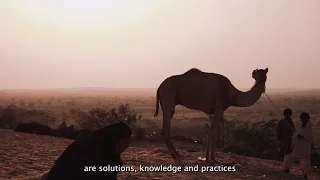
CuHeMo: CH in Motion: Indigenous Knowledge and Mobile Livelihoods in Changing Climates
The impacts of climate change can be detrimental to the cultural livelihoods of indigenous communities. At the same time, indigenous cultural heritage may play a role in adapting to climate risk and can be central to rethinking dominant approaches to addressing and understanding climate change. In CuHeMo we examine the role that cultural heritage plays in climate change adaptation, drawing from climate sciences, social sciences, and indigenous ways of knowing. We focus on indigenous groups whose livelihoods have historically been mobile, specifically pastoralists and fishery communities in Thailand, Ethiopia and Senegal. In researching this, CuHeMo offers a transdisciplinary perspective bringing together climate scientists, social scientists and indigenous knowledge holders. CuHeMo will do this for a diversity of climate parameters and geographical spaces, through in-depth yet comparative case-studies. This integrative assessment of climate-cultural risk will include attention to the ways in which large-scale and place-based sustainability projects may hinder the mobile practices of indigenous cultural heritage. Coordinated by Wageningen University (LPI), CuHeMo is driven by a transdisciplinary consortium, involving: social scientists with expertise in climate mobility (Wageningen University, University of Vienna) and cultural studies (Mahidol University); climate scientists (Deltares, Wageningen University); and academic and societal stakeholders with strong connections to the indigenous communities involved (Chao Leh Andaman Assoc., CREDETIP, University of Amadou Mahtar Mbow, HoAREC/N) and to the international policy community (VIDC) and media (Double Blind Media). Through participative methodologies and knowledge utilization activities, including community-based workshops, artistic expressions with indigenous communities, policy mobilization, and a project video intended for a broad public audience, our findings will shape mainstream policy debates concerning climate adaptation and mobile cultures.
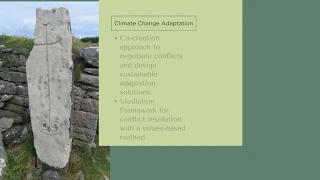
SEA-CCHange: Socio-Ecological Archiving: Coastal Communities' Heritage in times of climate change
Climate change poses a serious threat to cultural heritage, including traditional knowledge, and practices that define our identity and history. International climate agendas often neglect the cultural heritage of local communities, in particular coastal communities who are facing high climate risk. SEA-CCHange, a three-year research program, aims to explore how coastal communities perceive and adapt to climate change in the context of their cultural heritage and how this can inform climate mitigation and adaptation. In the climate and cultural heritage discussion, diverse narratives and local community heritage are often overlooked, leading to underrepresentation and vulnerable communities being left out of climate policy. SEA-CCHange seeks to change this by examining three critical aspects: 1. Assessing the physical risks posed by climate change to cultural heritage, contrasting these risks with how communities perceive them. 2. Investigating how heritage practices adapt during changing times through discussions and interviews; exploring the tensions and unexpected outcomes that emerge from multiple perspectives. 3. Documenting (in an open-access archive) how heritage is lived and practiced during climate change and seeking collaborative solutions that consider what's been lost, changed, valued, and what can be recovered. SEA-CCHange focuses on six international cases, including coastal communities in Ireland, UK, the Netherlands, Indonesia, and the Caribbean. The consortium partners span a wide range of inter- and transdisciplinary topics and societal partners that span local government, research policy, citizen science, fisheries and regional cultural heritage, who will collaborate to form a socio-ecological archive on/for the coastal community experience and promote impact and outreach to have their voices heard. By bridging cultural heritage and climate change research, SEA-CCHange aims to safeguard heritage, embrace diverse narratives, and contribute to informed policy decisions in the face of climate change.
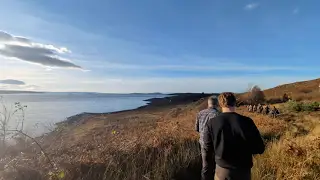
Cultivate: Co-Creating Cultural Narratives for Sustainable Rural Development (JPI CH CHIP Call)
CULTIVATE seeks to understand the role of cultural heritage in shaping sustainable landscapes and communities in the context of societal challenges such as the Covid-19 pandemic, the climate emergency and transitions required to meet the Sustainable Development Goals (SDGs). This research will explore how cultural narratives are co-created, contested and negotiated at community, regional and national scales using methods that bring to the fore cultural values, identity and relationships between people and land. CULTIVATE aims to make conceptual advances by integrating cultural heritage paradigms with socio-ecological systems (SES) to design a methodology to analyse how cultural narratives emerge in relation to stakeholder dynamics, landscape features and drivers of change. CULTIVATE will explore different meaning of heritage through a participatory co-creation approach thereby contributing to JPICH CHIP project and also informing progress towards SDGs. Cultural narratives will be reshaped using the ‘Seeds of a good Anthropocene’ methodology which focuses on using inspirational visions and stories to achieve transformations to sustainability. CULTIVATE will have valuable impact in real world socio-ecological systems by conducting research across four Biosphere Reserves which represent a diverse spectrum of rural cultural landscapes with an ethos of scientific-based management and community engagement. Cultural narratives in the BR communities will be contrasted with those at regional and national level to explore how cultural heritage is conceptualised in different parts of SES. Findings will be synthesised for dissemination both regionally/nationally and internationally. A bank of narratives expressed in written and arts-based forms will be produced as a resource and other outcomes will include policy recommendation for the integration of intangible heritage into planning and management. CULTIVATE will have lasting impact on communities through the empowering nature of its co-creation approach. The role of Biosphere Reserves as demonstration regions will lead to international impact through global Biosphere networks.
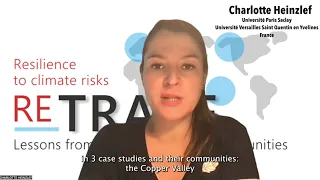
RETRACE: ResilienceS to climate risks: lessons from arctic and pacific communities (CCH Call)
Since the 2000's and in a climate change context, 2.3 billion people have been impacted by natural disasters. Faced with complex issues, risk management has evolved to analyze risks in a systemic way, integrating the resilience concept which is now an imperative for territories. However, few local actors manage to transform this concept into effective risk management strategies. Existing decision-support tools are mainly focused on technical-functional approaches. Although based on rigorous and scientific approaches, they don't represent reality with veracity, subtlety, accuracy. Local communities are therefore struggling to deal with it. It's now essential to find an effective way to enhance the resiliences of local communities, in order to develop more inclusive approaches to implementing resilience strategies to climate risks. The consortium believes that some elements are pillars of local resiliences: experiences, intergenerational, traditional, vernacular and local knowledge, etc. Integrating these forms of local, intrinsic, and cultural resiliencies into decision-support tools is not only a challenge for understanding resilience in its diversity but also a guarantee for the appropriation and adoption of such tools. Two geographical areas are identified as most vulnerable to climate risks: the polar zones and the Pacific islands. Communities with strong cultural dimensions have been selected: the Marquesan (French Polynesia), the Sámi and Kven (Norway) and the Ahtna (Alaska). RETRACE project aims to produce a decision-support system that enables the representation, understanding and implementation of resilience strategies adapted to local issues. The methodology is based on a mixed-methods approach: qualitative data from a collaborative approach aimed at identifying resilience factors in local narratives, traditions, experiences, sensitivities, knowledge, etc., and quantitative data derived from open source data. The aim is to develop long-term resilience strategies to climate risks in these communities and to ensure the reproducibility of the methodology.

SCENTinel: Climate Changes and Scent Heritage (CCH Call)
As the world grapples with the escalating impacts of climate change, not only are physical landscapes undergoing drastic alterations, but olfactory landscapes?the scents integral to our cultural heritage?are also endangered. Scents, whether tied to natural environments, rituals, or social customs, serve as potent triggers for emotional and evocative memories. These olfactory experiences are crucial in defining our shared history and collective identity. This project underscores the need to urgently address the climate-induced vulnerabilities affecting our scent heritage. Employing interdisciplinary methods spanning neuroscience, cultural studies, and cutting-edge technology, we aim to create a robust framework for capturing, digitizing, and preserving these imperiled scents. Our Intellectual Property (IP) will provide tools that enable us not just to document but also to reproduce these scents, much like we do with visual and auditory heritage. By focusing on the climate-change-driven threats to our olfactory landscapes, this project serves as a vanguard initiative for holistic cultural preservation, ensuring that future generations have access to this often-overlooked yet invaluable facet of human heritage.
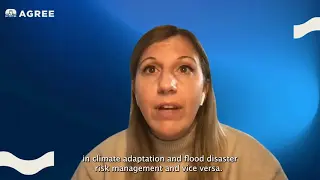
AGREE: Advancing Cultural Heritage Governance for Resilient Climate Adaptation (CCH Call)
Climate change, a multifaceted challenge interwoven with social, economic, and environmental dimensions, defies simplistic solutions. Despite global efforts, the pursuit of sustainability has fallen short, hindered by a narrow technical focus. This limited perspective has impeded the development of integrated, context-specific solutions. In response, AGREE champions transformative sustainability, emphasizing interdisciplinary methodologies and societal shifts. It explores the intricate link between cultural heritage governance, climate adaptation, and community resilience, rooted in responses to flooding in urban contexts. AGREE promotes the Historic Urban Landscape concept for integrative decision-making in climate adaptation, considering community resilience amidst environmental changes. An interactive Geographic Information System (GIS) platform will illuminate this interplay over time. An innovative AGREE's contribution is a decision-making model grounded in the HUL paradigm. This model juxtaposes current national and local policies enabling cultural heritage integration in climate adaptation with historical data sources revealing urban resilience lessons and changes in the built environment over time. AGREE employs transformative governance concepts to evaluate decision-makers' comprehension of these synergies and their perspectives. It advances transformative climate adaptation by uncovering potentials and barriers within heritage governance in case studies from the UK, Norway, and Italy. Beyond research, AGREE will shape policies with multi-scalar and cross-sectoral governance, interpreting climate intricacies through cultural heritage. It will strengthen global, national, and local heritage-focused climate strategies through partnerships with the British Council, ICCROM, and the UK's Department for Culture, Media, and Sport and local stakeholders, such as Hull City Council (UK) and Innlandet Region (Norway). AGREE also engages the public, raising climate adaptation awareness and mobilizing collective action, benefiting governmental climate efforts.
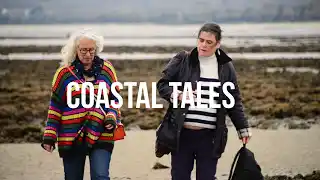
Coastal TALES: Telling Adaptations; Living Environmental Stories for Coastal Resilience (CCH Call)
Coastal TALES asks: How can stories of past practices help people (re)discover more sustainable ways of living in their rapidly changing coastal environments? Our goal is to show how heritage stories can generate tangible local action that diverse communities can draw on to adapt to a changing climate. We use a transdisciplinary approach, building on the knowledge and agency of local communities in dialogue with academic expertise across the spectrum of humanities and sciences. Facing a world undergoing significant social and ecological transformation, many people ask, "what can I do?". Individual actions often feel insufficient, with little perceptible effect. Coastal TALES attends to this growing social need by examining how stories can generate tangible action and offer creative inspiration to local communities and regional environmental stakeholders seeking to adapt sustainably. Coastal TALES collaborates with societal partners to understand how heritage stories can drive action in education, policy and nature-based innovation. TWe are focusing on three coastal areas (Kodiak Island, Alaska, Dublin Bay in Ireland and southwest Wales) which bring together examples of environmental change affecting distinct communities with a shared sense of urgency. The Kodiak study highlights commercialised fishing in an Indigenous context, encouraging youth to draw on ancestral knowledge as a means to forge environmentally sustainable communities and lifeways. In Ireland oral histories and historical maps help identify practices of managing rising waters with hard and soft coastal defence structures. In Wales revival of local coastal heritage foods is foregrounded, with an emphasis on learning how heritage stories can drive sustainable adaptation. Coastal TALES demonstrates the value of reviving heritage stories in three distinct social contexts, each of which uniquely illustrates how listening to voices from the past and empowering voices of the present can create a legacy for future generations and offer a source of resilience in the face of climate stress.

REFRESH: WateR cyclE For RESilient Heritage (CCH Call)
Cultural heritage, as represented by collections in museums and the built environment, is a unique resource in socio-cultural and economic terms. Climate change will lead to extreme events such as droughts and floods, severe storms and heat waves occurring more frequently across Europe. While the impact of climate change on society and ecosystems has garnered significant attention, the consequences for cultural heritage have largely been overlooked. The major factor controlling the impact of climate change on heritage buildings hosting collections, surrounded by natural environments is water (in excess or in stress) and its transfer. In this context the project aims to understand the role of the water cycle on cultural heritage site conservation with an holistic approach considering water dynamics at three scales : - The liquid water in the natural environment (soil and vegetation in gardens and parks) - The liquid to vapor water transfer within the architectural building envelope (monument) - The vapor to liquid water in interiors and collections (condensation phenomena) This research explores how heritage sites can be resources for climate mitigation, adaptation and sustainable development through optimal management of the water cycle in and around them. Our objective is to identify levers at the heritage site scale to optimise conservation of cultural heritage while improving water management and reducing energy consumption. To achieve the project objective, a transdisciplinary approach will combine historical, experimental, theoretical and numerical studies of water transfers across three scales at real heritage sites with respect to climate data. Building on the resultant improved understanding of water transport, passive solutions as well as innovative materials and techniques will be integrated and optimized. Using these levers, the project will establish how the nature-culture relationship (soil-vegetation-buildings-museum collections) could be the key to making European cultural heritage more resilient.